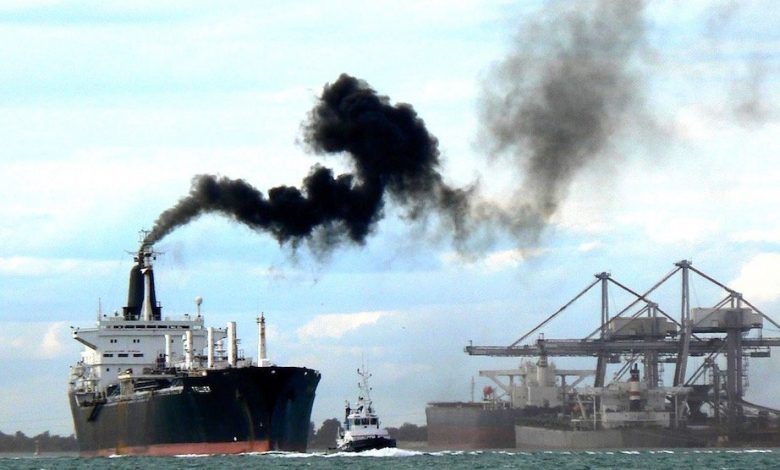Shipping’s CO2 proposals slammed as merely ‘decorative words’

A host of NGOs have criticised Thursday’s submission by four leading shipowning bodies on how the IMO should tackle CO2 emissions as not being ambitious enough.
Ahead of next month’s crucial IMO Marine Environment Protection Committee (MEPC71) meeting in London, BIMCO, Intercargo, the International Chamber of Shipping (ICS) and Intertanko have submitted a submission, which contains two “aspirational objectives”, namely to maintain international shipping’s annual total CO2 emissions below 2008 levels; and to reduce CO2 emissions per tonne of cargo transported one kilometre, as an average across international shipping, by at least 50% by 2050, compared to 2008.
The proposals were not, however, greeted wholeheartedly by a group of NGOs focused on shipping and the environment. The general response among those polled by Splash in the wake of the submission was that shipping industry is finally sailing in the right direction on climate change but far too slowly.
Maurice Meehan, director of global shipping operations at the Carbon War Room, said that the objectives set out lack the ambition that the world expects of the shipping industry.
“This position effectively states that from today until 2050, overall GHG emissions levels will stay roughly where they were at their height in 2008,” he explained, adding: “The Paris Agreement has set the world on a 2-degree trajectory and shipping must make goals in line with this, which equate to a 50% reduction in actual annual GHG emissions by 2050, not just operational efficiency goals which fails to account for future growth in the sector.”
Faig Abbasov, from the Clean Shipping Coalition was less diplomatic, saying: “To achieve an effective global deal we will need real leadership from the industry and less decorative words. No commitment to cap and reduce global emissions in absolute terms by at least 50% by 2050 compared to current levels is hardly a break from business as usual. The industry’s ambitious proposal explicitly refuses this commitment. It is high time to shape up or ship out.”
Bill Hemmings, from the NGO Transport & Environment, concurred with Abbasov, telling Splash: “To cap or not to cap . That is the question. Or to quote another phrase: You can’t have your cake and eat it too.”
Diane Gilpin from the Smart Green Shipping Alliance was more conciliatory but also in favour of a cap, saying: “It’s great to see these high profile industry bodies recognising the urgent need for decarbonisation ahead of MEPC71.”
She reckoned the IMO might be wisest to signal its adoption of a binding target in line with the spirit of the Paris Agreement.
“A binding cap gives investors market certainty to stimulate the much needed and overdue development of fossil free fuels and maritime renewable energy technologies so that significant new wealth generation opportunities can be realised in the shipping sector,” she told Splash.
Concluding, she warned: “The later we leave it, the harder – and more expensive – it all gets.”
MEPC71 is due to sit down from July 3 to 7.

One is underwhelmed, but not surprised, by the performance of BIMCO, the ICS, Intercargo and Intertanko.
The “shipping representative bodies” have managed to make themselves look like no more than a bunch of bureaucratic placeholders, proffering platitudes on behalf of some of the the world’s less attractive groups of very rich old men.
The same industry bodies are seldom backward in coming forward with requests for special treatment for shipowners.
None the less, the shipping bodies will win this one, at the IMO level, because the IMO lacks anything that could possibly be termed “leadership”.
I specify “at the IMO level” because unless the IMO improves its performance it will soon be outgunned. Shipping, as every schoolboy knows, is not politically important at all, and we may all be about to learn that lesson.
Let us also remember it is governments that run the IMO. The shipowners have put a proposal on the table in their favour. That is business. I will leave it at that.